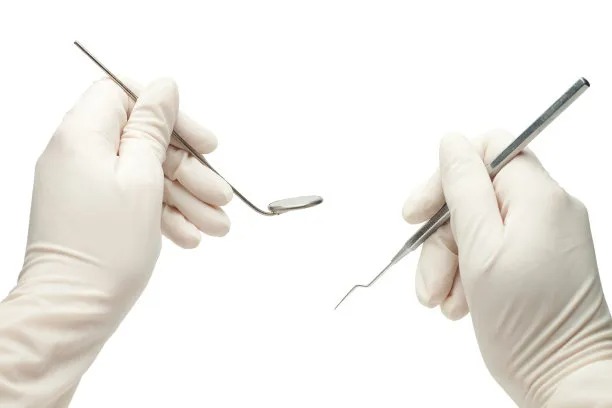Summary: After receiving dental fillings, maintaining optimal oral health requires specific care and attention. This article outlines essential tips and precautions that patients should follow to ensure proper healing and longevity of their fillings. Understanding what to expect post-procedure, managing discomfort, adjusting dietary habits, and maintaining oral hygiene can significantly affect overall dental well-being. By adhering to these guidelines, patients can enjoy a healthy smile and reduce the risk of further dental issues.
1. Understanding What to Expect After Fillings

Following the placement of dental fillings, it is important to understand the sensations you might experience. Some patients report a slight numbness in their lips and tongue due to the local anesthetic. This numbness generally subsides within a few hours, but it鈥檚 essential to avoid biting your cheeks or tongue during this period to prevent injury.
Additionally, its normal to feel some discomfort or sensitivity in the filled tooth when exposed to hot or cold temperatures. This sensitivity might last for a few days or even a couple of weeks. If the discomfort persists, its advisable to consult your dentist for further evaluation.
Moreover, new fillings can feel slightly different when chewing. Take the time to evaluate your bite after the anesthetic wears off. If you notice anything unusual or if the filling feels high, contact your dentist to adjust the filling for comfort.
2. Managing Discomfort and Sensitivity
Post-filling discomfort can range from mild to moderate, but there are effective ways to manage it. Over-the-counter pain relievers such as ibuprofen or acetaminophen can alleviate pain. However, it鈥檚 crucial to follow the recommended dosage to avoid adverse effects.
For those experiencing sensitivity, using a desensitizing toothpaste can significantly reduce discomfort. These toothpastes contain compounds that block sensations from reaching the nerves in your teeth and are easily found at most supermarkets and pharmacies.
If you find that your discomfort persists beyond a couple of weeks, or if it intensifies, returning to your dentist is vital. It may indicate an underlying issue that needs immediate attention, such as a possible cavity beneath the filling or an improper fit.
3. Dietary Adjustments Post-Procedure
After getting dental fillings, it鈥檚 important to make temporary dietary changes. For the first 24 hours, stick to soft foods and avoid anything too hot, cold, or sticky. Foods like yogurt, mashed potatoes, and smoothies are good options that won鈥檛 disturb the filling while providing nourishment.
As you reintroduce regular foods, pay attention to any discomfort during eating. If certain foods cause pain, it may be worth avoiding them until sensitivity is resolved. Furthermore, resist the urge to chew on hard items such as ice or tough meats, as they can damage or displace the filling.
After the initial healing period and once you鈥檝e reintroduced solid foods, maintaining a balanced diet is critical. Nutrients from fruits, vegetables, and whole grains can support overall oral health and encourage healing.
4. Maintaining Oral Hygiene for Longevity
Good oral hygiene is paramount after getting dental fillings. It鈥檚 essential to maintain a regular brushing routine, using fluoride toothpaste, at least twice a day to prevent plaque buildup around the filling. Additionally, gentle brushing around the filled area helps avoid further irritation while ensuring cleanliness.
Flossing is equally vital; however, be cautious around the filled tooth. Do not force the floss, as that can dislodge the filling. Instead, position the floss at the base of the tooth and slide it gently up and down.
Lastly, regular dental check-ups and cleanings are necessary to ensure the health of your fillings and remaining teeth. Your dentist can provide professional cleanings and monitor the integrity of fillings over time, addressing any concerns early on.
Summary:
In conclusion, taking care of your dental fillings is crucial for maintaining optimal oral health. By understanding what to expect post-procedure, managing any discomfort, adjusting your diet, and sticking to your oral hygiene routine, you can ensure the longevity of your fillings and avoid future dental problems. Follow these essential tips to keep your smile bright and healthy!
This article is compiled by Vickong Dental and the content is for reference only.
Vickong Dental
Vickong Dental is a large medical group established in Hong Kong in 2008 by professors from well-known medical universities in Guangdong and Hong Kong, as well as medical doctors from key national '985' universities (including Master's supervisors and senior professors). The chain of branches brings together expert dentists with PhDs and Master's degrees from Hong Kong and Mainland China, committed to providing high-quality dental treatment.
"Vickong Dental Practices the University Motto of 'Healing and Serving Society,' with a Stable Operation for Sixteen Years. It Has Been honored with Hong Kong Enterprise Leaders's Choice,' and is a Global Trusted Implant Center for the Nobel Implant System. Recommended by Hong Kong Metro Broadcast and Guangdong Television, it Serves Customers from Over Thirty Countries and Regions, Gaining the Trust and Favor of Citizens from the Guangdong-Hong Kong-Macau Greater Bay Area and Surrounding Cities.

Thousands of customers' unanimous praise
The most recognized and highly recommended dental service by customers in the Guangdong-Hong Kong-Macau Greater Bay Area
We Ensure You Receive Detailed Care and Attention Here
Hong Kong standards, Shenzhen prices, Your Trusted English-speaking dentists

Vickong Dental Medical-Grade Instrument Disinfection Process
Vickong Dental Medical-Grade Instrument Disinfection Process

Vickong Dental Chain: A Warm and Comfortable Environment for Treatment






Appointment Hours

Q&A
Why choose Vickong Dental?
Vickong Dental practices the university motto 「Medicine to Benefit Society」, with each branch bringing together highly qualified dentists with doctoral and master’s degrees from Hong Kong and the Mainland, and has maintained seventeen years of steady operation。Recipient of 「2024 Hong Kong Enterprise Leaders Brand」, 「2025 Hong Kong Enterprise Leaders Brand」, a Nobel Biocare Global Trusted Implant Center, and a brand recommended by Metro Radio Hong Kong and Guangdong TV。
To date, we have served customers from more than thirty countries and regions,earning exceptionally high word-of-mouth recognition and trusted recommendations from residents across the Guangdong-Hong Kong-Macao Greater Bay Area and surrounding cities
We have eight major branches in Zhuhai、Shenzhen,and a consultation and service assurance center in Hong Kong,so you can book a free consultation at any time for any questions,which is very reassuring.
If I do not accept the quotation after the CT scan, will I be charged??
No! As long as the actual treatment has not started, you will not be charged any fees.
Will there be any additional charges during the treatment process?
No, there won’t be any additional charges. Before treatment begins, we will clearly explain the treatment plan and its corresponding fees. Only after the patient agrees and signs the consent form will we proceed with the dental service.
Can I pay in Hong Kong dollars?
Yes. Vickong Dental accepts payment in Hong Kong dollars. The amount will be converted based on the exchange rate of the day, and the applicable rate will be clearly communicated to you in advance.
Can I reschedule my appointment at any time?
Yes. Please contact us via **WeChat** or **WhatsApp** as early as possible, providing your original appointment time and details, along with your preferred new date and time slot for rescheduling.













